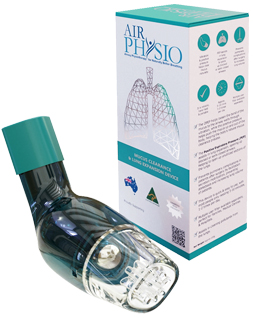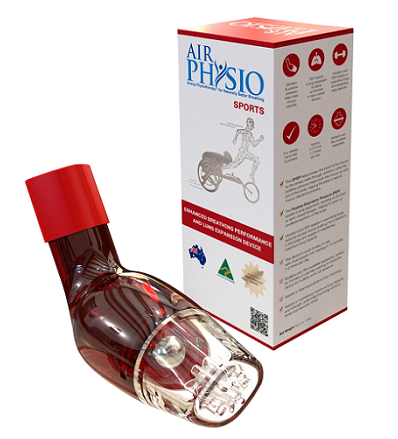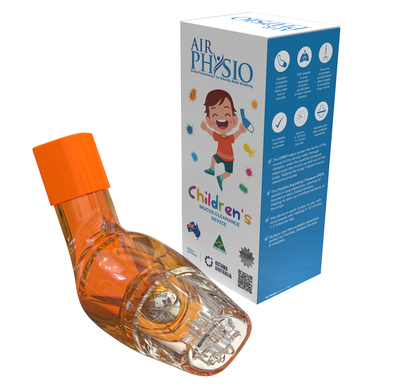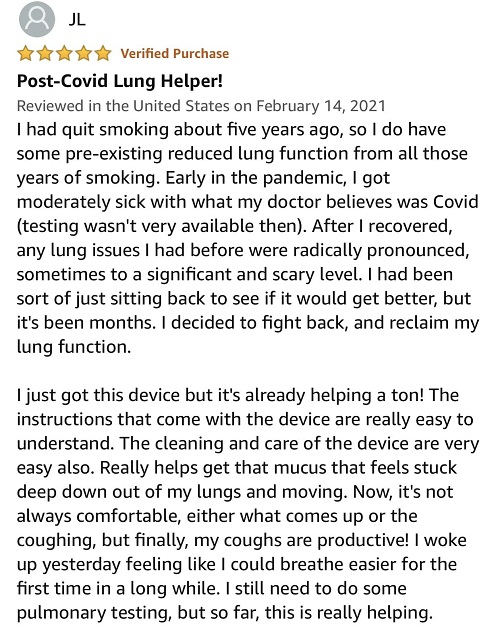Bronchitis vs Covid-19 – How Do You Know if You Have Bronchitis or COVID-19
Acute bronchitis and Covid-19 are respiratory diseases. If you have been experiencing a bothersome cough lately, it’s easy to get confused between these two.
Is it bronchitis? Is it Covid-19? It’s scary to get any kind of respiratory infection these days. The current evolving covid 19 pandemic can easily make you question every symptom you experience.
Let’s take a closer look at bronchitis vs covid 19 and determine the differences to help clear up the confusion.
bronchitis vs. covid-19
Bronchitis occurs when the main airways of the lungs are inflamed. Here, the lining of the bronchial tubes gets inflamed, mostly due to viral or sometimes even bacterial infection.
Two types of bronchitis that people are diagnosed with are:
Acute Bronchitis: This is usually triggered by a virus. It’s short-term and gets better on its own but can also develop into pneumonia if left untreated.
Chronic Bronchitis:This is a long-term condition that develops gradually and falls under the chronic obstructive pulmonary disease umbrella.
Covid-19 is a respiratory disease caused by a new type of virus – coronavirus, that has triggered a worldwide health pandemic. Unfortunately, there are many variants of coronavirus. While some people with a covid 19 infection have mild symptoms like cold, others can lead to more serious conditions like severe acute respiratory syndrome (SARS).
Covid-19 is contagious, and the symptoms will most likely appear during the first two weeks of virus exposure. You can even spread this disease to others even if you don’t show the symptoms yourself.
What Are the Symptoms of Both the Illnesses?
People suffering from bronchitis may experience bronchitis symptoms including:
- A wheezing cough
- A cough with clear or discolored mucus
- Runny nose
- Weakness
- Breathlessness
- Discomfort in chest
- Sore throat
- Low-grade fever
- Chills
On the other hand, anyone can get Covid-19. The symptoms also range from mild to severe symptoms, and the understanding of this illness is still being developed.
As said above, the symptoms generally appear two days to two weeks once you’re exposed to this virus. These include:
- Cough
- Nasal congestion
- Headache
- Fever
- Chills
- Sore throat
- Loss of taste
- Loss of smell
- Runny nose
- Muscle aches
- Tiredness
- Breathlessness
- Diarrhea
- Nausea
What Causes Bronchitis and Covid-19?
If we talk about acute bronchitis we tend to start with the common cold. It is generally caused by the same type of viruses that causes flu, like influenza and rhinovirus. It can also be caused by bacteria; however, this is rare. Less than 10% of acute bronchitis cases are caused by a bacterial infection.
As said above, Covid-19 is a result of the coronavirus virus. The virus strain known as SARS-CoV-2 is known to cause infection with severe acute respiratory syndrome.

How Can Bronchitis and Covid-19 Be Diagnosed?
In both cases, you should seek the diagnosis of a licensed healthcare provider to determine whether you are affected with Covid-19 or bronchitis.
Let’s start with acute bronchitis testing. A doctor will begin by asking you about any symptoms you are experiencing. Then, they will carry out a physical health exam. Your doctor will likely order some blood tests to rule out different causes that could be related to your symptoms. You could also potentially get a chest x-ray, especially if you’re having a fever to eliminate the possibility of pneumonia.
For Covid 19 testing, a viral test is conducted. In this test, doctors place a swab inside your nose and throat. After this test, the swab is tested to check for the presence of COVID-19. However, note that this test will only tell you if you are presently infected- it cannot pick up on any previous COVID-19 infection. Also, in case you test negative, remember that you still have the risk of getting infected. As soon as you start feeling any of the typical symptoms, it’s best to take the test again to rule out Covid-19.
How to Tell the Difference Between the Two
Only a doctor will be able to find the actual cause of your symptoms. However, while you’re waiting to get in touch with your doctor, here are some key points that differentiate between the symptoms of bronchitis and Covid-19.
Bronchitis is more likely to cause a wet cough while Covid-19 will cause a dry cough, fever, diarrhea, chills, as well as loss of smell or taste.
Does Covid-19 Affect You if You Have Bronchitis?
If you’re diagnosed with bronchitis, it doesn’t necessarily mean that you’ll get Covid-19. However, note that as your lungs are already inflamed by a respiratory illness like bronchitis, it may lead to severe complications if you contract the coronavirus.
As said above, bronchitis inflames the lining of bronchial tubes. These tubes are the medium for transferring air to your lungs. So, inflammation of this lining can further weaken the cellular barrier that protects your lungs.
Additionally, the mucus production in the airways will prevent the germs and debris to sweep out. This, in turn, makes it easier for germs and viruses like coronavirus to attack your lungs. If this happens, your lung can be damaged up to a greater extent and you may also have a harder time breathing if you develop Covid-19 along with chronic bronchitis.

What are the Treatments for Bronchitis and Covid-19?
In the case of acute bronchitis, antibiotics won’t make any difference as it is typically caused by a virus. There is a high chance that this illness will improve on its own. This is why treatment is not focused on a cure, but rather, on the relief of your symptoms.
Make yourself feel better by taking these steps:
- Drink fluids, especially hot liquids like tea
- Take lots of rest
- If you have a severe cough, take honey. (Please note that this is not recommended for infants)
- Use saline nasal sprays or sinus rinses to ease your condition
- In case of sore throat, use lozenges. (Please note this is not recommended for anyone under the age of 4)
- Inhale steam
- Use a humidifier
- Relieve your pain by taking over-the-counter medications like ibuprofen
In the case of Covid-19, you need to take treatments guided by your healthcare provider. It is important to adhere to your doctor’s instructions here or else, things can get worse. Talking about the treatments, they are still evolving. Only treatments that have been tested and approved by the FDA i.e., Food and Drug Administration should be considered.
One of the initial FDA-approved treatments for Covid-19 is a drug called Veklury (aka remdesivir).
Another treatment that got approval is the use of a monoclonal antibody therapy that is designed to block the SARS-CoV-2 virus. These monoclonal antibodies are proteins that are made in labs. They have the potential to act as the immune system and fight against antigens like viruses.
Shortly after, another emergency use authorization was given by FDA for a combination of the drugs – baricitnib and remdesivir.
As it is the new virus, the research and findings are carried out extensively, and gradually, treatments and different covid 19 vaccine options are being introduced. If you’re eager to know more about the latest advancements in the treatments for Covid-19, it’s best to reach out to your healthcare provider. Your doctor is the best resort to get the most up-to-date information about the approved treatments and vaccines for coronavirus.
In general, if you happen to be a part of a high-risk group, you’re likely to get Covid-19. So, precaution is the key here.
Taking the first-hand precautions to avoid contracting Covid-19 include:
- Maintaining 6 feet distance from other people
- Wearing a face mask in public settings
- Avoiding large crowds, unnecessary travel, and indoor events or gatherings
- Keeping distance from others, especially if you have bronchitis or any other medical condition as you’re at high risk for complications
- Quarantining for 14 days if you had close contact with someone who tested positive for Covid-19
In short, it’s best to avoid social gatherings and strictly adhere to the social distancing rule.
If you test positive, it is important to quarantine and follow the protocols to overcome it as well as prevent from spreading it to your friends and family. Your doctor may even recommend taking some antibodies at this point to help your immune system fight against the virus. Apart from this, it is important to monitor your condition regularly. Your doctor will advise you to get plenty of rest, stay hydrated by drinking lots of water and if need be, take fever-reducing medicines like ibuprofen.
THE BOTTOM LINE
If you have bronchitis, it’s best to stick to your treatment plan as prescribed by your healthcare provider. Stay hydrated and limit your exposure to the public as you may be at a higher risk for complex and severe symptoms and complications of Covid-19.
Apart from this, avoid touching your face when you’re in a public setting and wash your hands often.
In case you have chronic bronchitis and develop Covid-19, it is important to take timely and appropriate care. Reach out to your doctor immediately if you experience any symptoms. Get the required treatment and care while following all the safety protocols and hygiene tips.
Stay apart, follow social distancing, wear a face mask, wash, and sanitize your hands. Together we’ll overcome this global pandemic.
Average Lung AirPhysio
ENJOY BETTER BREATHING - Use this 100% Drug Free Device - AIRPHYSIO

Recent Posts
Sports AirPhysio
IMPROVE YOUR SPORTING PERFORMANCE - Use this 100% Drug Free Device - AIRPHYSIO

AirPhysio Child
BETTER BREATHING FOR YOUR CHILD - Use this 100% Drug Free Device - AIRPHYSIO

Categories
- asthma (2)
- atelectasis (2)
- bronchiectasis (2)
- copd (3)
- cystic-fibrosis (45)
- featured (10)
- uncategorized (2)


